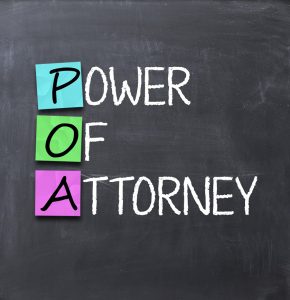A power of attorney (POA) is a document that serves as a written authorization to represent or act on another’s behalf. However, a POA does not necessarily give someone the right to make all decisions. There are different type of POAs, and they have different rules determining the abilities of the person named as Power of Attorney. As a Houston Estate Attorney, I want to be clear that if you are an agent under POA, it is important to know what decisions you can, and cannot make on behalf of the grantor. Here are a few frequently asked questions regarding POAs.
 Do I have the authority to make medical or financial decisions for the grantor? Or both?
Do I have the authority to make medical or financial decisions for the grantor? Or both?
You can have either a financial or medical power of attorney. You may have already guessed but a financial power of attorney has authority over your financial matters and a medical power of attorney can have power over medical decisions. A medical power of attorney can have many different guidelines or limitations depending on the desires of the grantor. While it is possible that you have been granted the power to make both medical and financial decisions, it is important to point out that two different legal documents must be executed.
Does this Power of Attorney expire after a set time period or does it go on forever?
This can depend on the state you live in and what that state allows. If your power of attorney expires after a set time, it is important to renew or set up a new power of attorney at that time. If your power of attorney is durable that means that it will hold authority granted by the documents unless the individual chooses to revoke the power of attorney. If you do have a durable power of attorney it is still important to regularly review the document, as some instructions will not accept a power of attorney that is over a certain age, which is typically 12-24 months.
Is my Power of Attorney effective now or after a triggering event?
Many POAs are effective at the time that the document it executed. However, if you wish, you can make it effective only after a certain triggering event such as incapacity.
If you have been named as an agent under a POA for someone, be sure to periodically review the document with an experienced Houston estate attorney who can ensure that you have the decision making authority you need. If you do not have a POA, you should consider putting one in place to ensure that someone can speak for you if you are unable to speak for yourself. Contact us today at (281) 885-8826 to get started.

Kimberly Hegwood is the Managing Attorney of Your Legacy Legal Care, a Houston estate planning law firm. With more than 25 years of experience practicing law in Texas, she represents clients in a wide range of legal matters, including elder law, asset protection, estate planning, Medicaid crisis planning, probate, guardianship, and other estate planning practice areas.
Kimberly received her Juris Doctor from the South Texas College of Law and is a member of the State Bar of Texas.
Your Legacy Legal Care


